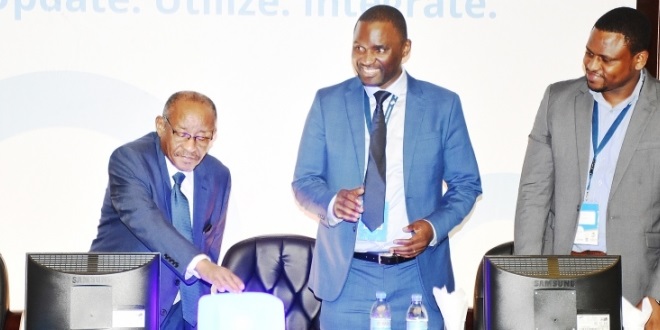THE country’s financial sector has welcomed new digital transformation following the launching of Financial Services Registry (FSR), a digital tool which would enable mapping of all financial services access points and enhance equal distribution of financial service investments.
The FSR will go a long way towards promoting inclusive economy, Central Bank Governor, Prof Florens Luoga said when officiating the launching of the online registry yesterday in Dar es Salaam.
The permanent registry has been linked to other sources of information about socio-economic activities of particular areas, thus, helping the bankers make informed decisions over the actual need of the financial services in those areas.
The tool is a brain-child of the Bank of Tanzania (BOT) in collaboration with Financial Sector Deepening Trust (FSDT) and regulators of the sector.
“This is part of improving financial services and ensuring that they are used to improve people’s lives,” Prof Luoga explained.
He said the registry would not only enable people to know where to get the services but it would also make the government know where the services are unavailable.
DCB Commercial Bank Managing Director Godfrey Ndalahwa said with only 17 per cent adult Tanzanians accessing bank services, the registry is expected to boost the number of users of bank services because of increased investments.
“The archive will provide updated statistics at the right time to enable investors in the banking sector make decisions at the right time,” Mr Kewe stated.
Executive Director of the FSDT, Mr Sosthenes Kewe, noted that financial services convenience has improved from 45 per cent of adults living near the services points to 86 per cent currently.
‘Coming up with this registry gives us opportunity to add more financial services points, for instance near health facilities. It would also help policy makers to drive the financial sector in another different way,” Mr Kewe stated.
Commenting, Vodacom M-Pesa Director, Mr Epimark Mbeteni, said the registry would enrich data that they already had, citing social-economic information as one of additional inputs.
“We know where our agents are but not actual needs of financial services in those areas. So we (bankers) did not have a means to know what economic activities are conducted in areas where our agents operate,” he admitted.
He added: “normally individuals were taking their own initiative to open up banking agent stores in certain areas, so with availability of this registry we would be able to advise people who wish to be our agents over where to invest,” Mr Mbeteni noted.
On his part, Mr Collins Nyakunga, Deputy Registrar of the Tanzania Cooperative Development Commission (TCDC), said for a long time they have been using manual system to manage the cooperative societies, hence the coming of the registry would help them consolidate and validate cooperatives data.
“We look forward to seeing an increase in the number of members of the cooperative unions because the registry would raise trust among people over the unions,” he stated, adding that the registry will make public the profiles of cooperative unions, including members statistics.
Mr Nyakunga further noted that the registry would make it easier for them to assess the cooperative unions as now they would not be required to visit offices physically, instead, they would go to the registry and obtain updated information.







